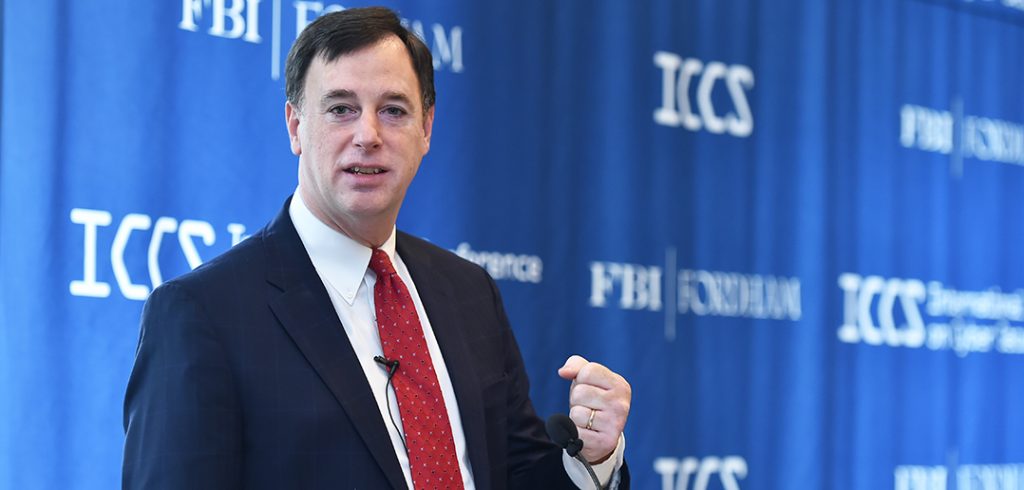Moments before the House of Representatives voted to extend Section 702 of the Foreign Intelligence Surveillance Act (FISA), which allows the federal government to collect electronic communications of foreigners abroad without warrants, Rob Joyce, special assistant to the president and cybersecurity coordinator for the White House, stressed its importance.
“702 is absolutely a vital national security tool, it’s something that allows us to understand terrorist threats, and keeps the country safe—there’s no confusion on that,” said Joyce, speaking on Jan. 11 at the 2018 International Conference on Cyber Security.
Joyce said that a proposed Amash Amendment, which sought to end the National Security Agency’s sweeps, under the 702 program, of Americans’ phone and electronic records when pursuing foreign suspects, would have a “chilling effect” on the way the law is applied. (The 702 extension passed without the amendment.)
In response to a question from Reuters, Joyce said that information gathered under Section 702 has never been used for political purposes and is overseen by all three branches of the federal government.
Wanted: 300,000 Skilled Workers to Fill Cybersecurity Jobs
Joyce’s ICCS presentation also underscored other aspects of cybersecurity. He said that from the moment a person plugs in a new computer, malicious attempts are made to access the data on the device. The problem is writ large for government and private sector institutions.
“They’re coming at our infrastructure and capabilities, not [just]our information,” he said.
He called for an “accountability culture” that holds top executives in the C suite responsible for any breach within a corporation, and not simply relegating security decisions and responsibilities to the IT department.
“Tech solutions are not enough to solve the cyber problem,” he said. “People are driving it.”
As we put more and more information online via the internet of things, there will be more need for experienced personnel across many disciplines, he said.
“As I met the Fordham students today who are working the conference, there were computer scientists in that group. But there were also psychologists and economic majors,” he said. “No matter what discipline you’re in, you’re going to have a connection to a cybersecurity problem.”
Higher education should reflect that trend, he said.
“We also need females and minorities, in the same percentages as white males, working in the cybersecurity community,” he said.
He added that the long-term health of the nation and its industries are buttressed by research at the graduate level. And with nearly 300,000 jobs in cybersecurity currently available, the need for talent is becoming dire. This is particularly true in the government sector, where the security clearances and salaries can limit the talent pull.
“We have fewer people going for graduate degrees, especially fewer U.S. citizens, in computer science and engineering,” he said. “In the national security space, that’s a problem.
“We need innovative research with ‘cleared’ people in that arena.”

